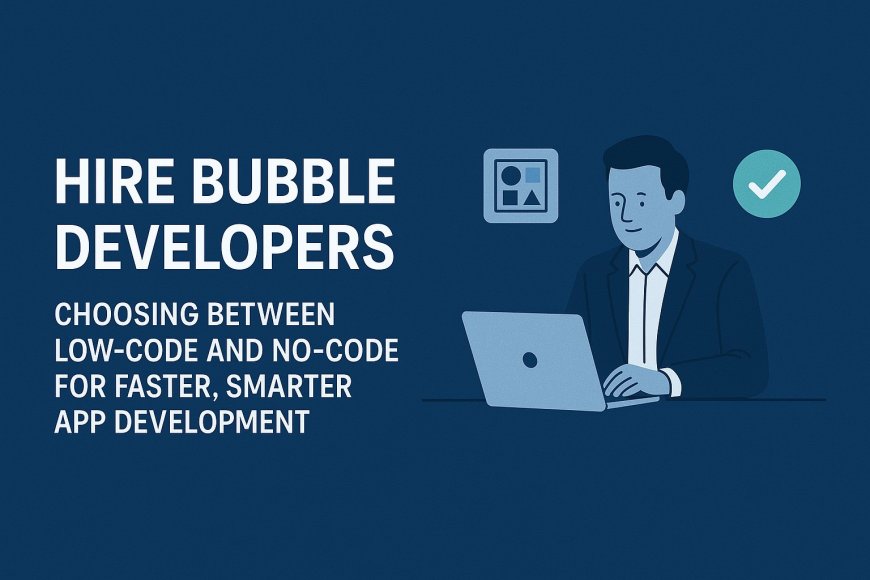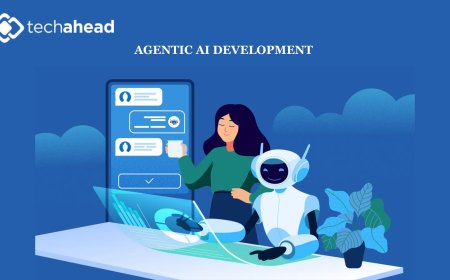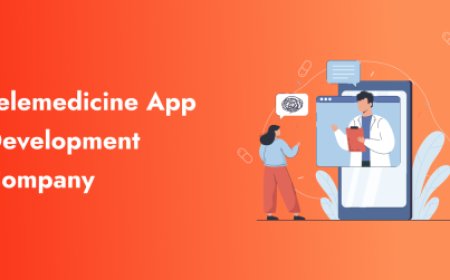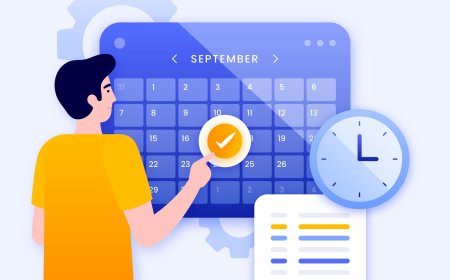Hire Bubble Developers: Choosing Between Low-Code and No-Code for Faster, Smarter App Development

In todays fast-moving digital world, businesses are under constant pressure to launch apps and digital tools faster than ever before. Traditional development, while powerful, can be time-consuming and expensive. This has led to the explosive rise of low-code and no-code platformsrevolutionizing how software is built by both technical and non-technical users alike.
Among the leading no-code platforms, Bubble.io stands out as a flexible, visual web development tool capable of building everything from MVPs and marketplaces to SaaS platforms. However, using Bubble to its full potential requires experience and architectural know-how, which is why many businesses now hire Bubble developers to get it done right the first time.
In this article, well compare low-code vs. no-code, break down the pros and cons of each, and explain why hiring skilled Bubble developers is a strategic move for smart, scalable app development.
Understanding the Difference: Low-Code vs. No-Code
What is No-Code?
No-code platforms allow users to build applications using visual drag-and-drop interfaces, prebuilt components, and automated workflowswithout writing a single line of traditional code. These platforms are designed for non-developers or citizen developers to bring their ideas to life quickly.
Examples of no-code platforms:
-
Bubble.io
-
Webflow
-
Glide
-
Thunkable
-
Adalo
What is Low-Code?
Low-code platforms also offer visual development tools but allow users to inject custom code for advanced functionality. They are primarily used by professional developers who want to accelerate app development without sacrificing full control.
Examples of low-code platforms:
-
OutSystems
-
Mendix
-
Microsoft PowerApps
-
Zoho Creator
Key Comparison: Low-Code vs. No-Code
| Feature | Low-Code | No-Code |
|---|---|---|
| Coding Required | Some coding required for customization | No coding required |
| User Audience | Developers, IT teams | Non-technical users, entrepreneurs |
| Speed to Launch | Fast | Very fast |
| Customization | High (with code) | Medium to high (with platform limitations) |
| Scalability | High | High (with right architecture) |
| Use Cases | Complex apps, legacy integration | MVPs, startups, internal tools, SaaS |
| Cost | Moderate to High | Low to Moderate |
Why No-Code Is Winning for Startups and SMBs
No-code platforms like Bubble.io are ideal for startups, solo founders, and SMBs who need to:
-
Launch MVPs fast
-
Save on development costs
-
Iterate based on user feedback
-
Avoid technical debt early on
With Bubble, you can build a fully functional SaaS app or marketplace in a matter of weeks, not months. But to avoid performance issues or structural flaws, many startups now hire Bubble developers who understand how to optimize everything from database logic to responsive design.
Bubble.io: The Most Powerful No-Code Platform
Bubble is a no-code web app builder that includes everything needed to create full-stack applicationsfrontend UI, backend workflows, and a cloud-based database. It also supports:
-
API integration
-
Third-party plugins
-
Responsive layouts
-
User authentication
-
Payment systems
Bubble offers the complexity of a traditional tech stack without requiring a single line of codemaking it incredibly attractive for lean teams and non-technical founders.
However, while anyone can use Bubble, not everyone can use it well. Thats why many businesses choose to hire Bubble developers who specialize in the platform.
Why Hire Bubble Developers?
Hiring an expert Bubble developer brings a range of strategic advantages, especially when aiming to build scalable, performance-optimized applications.
1. Faster Launch, Fewer Mistakes
Experienced developers can build clean, efficient, and scalable apps faster. They know the Bubble ecosystem inside out and skip the learning curve that most founders or hobbyists face.
2. Professional-Grade UI/UX
While Bubble allows drag-and-drop design, responsive layout and accessibility are complex. Skilled Bubble developers ensure your app looks and works great on all devices.
3. Scalable Database Architecture
Database and workflow structure is the backbone of a Bubble app. Bad setup leads to slow apps. Experts create organized, efficient data systems that perform well and scale over time.
4. Secure, Reliable Integrations
Want to integrate Stripe, Twilio, Google Maps, or a CRM? Bubble developers handle complex API integrations with security, performance, and UX in mind.
5. Ongoing Maintenance and Updates
Apps require regular updates, bug fixes, and performance tuning. A reliable Bubble developer provides ongoing support to keep your app competitive.
Use Cases Where Hiring a Bubble Developer Shines
Here are common projects where companies successfully hire Bubble developers:
-
MVP Development: Test your idea quickly without draining resources.
-
Marketplaces: Build multi-user platforms with messaging, reviews, and payments.
-
SaaS Products: Subscription-based tools with user dashboards, billing, and analytics.
-
Client Portals: Secure login systems for customer onboarding and data access.
-
Internal Tools: Automate workflows and streamline internal operations.
Bubble vs. Low-Code: Which Should You Choose?
Ask yourself these key questions:
-
How complex is your app?
-
If you need deep custom logic, low-code might be better.
-
For user-facing tools and MVPs, Bubble is ideal.
-
-
Do you have an in-house dev team?
-
Low-code is a great choice for IT teams that need speed.
-
No-code is perfect for non-dev teams building autonomously.
-
-
Whats your budget and timeline?
-
Bubble enables rapid prototyping at low cost.
-
Low-code may be more expensive and time-intensive.
-
In most cases, startups, agencies, and SMBs benefit more by going with Bubbleand choosing to hire Bubble developers to get top-tier results without breaking the bank.
Tips for Hiring the Right Bubble Developer
When you're ready to hire, keep the following in mind:
-
Check portfolios: Look for Bubble apps similar to your vision.
-
Ask about integrations: Ensure theyve handled real-world API and plugin needs.
-
Discuss project scope: Make sure they understand performance, responsiveness, and scalability.
-
Get post-launch support: Good developers stick around to fix bugs and optimize.
You can find Bubble developers on platforms like:
-
Codemap
-
Upwork
-
Bubble Forum
-
Toptal (Bubble specialists)
Conclusion: Build Smarter, Scale Faster with Bubble Experts
The rise of no-code and low-code tools is transforming how we build software. They empower businesses to innovate faster, reduce dependency on large teams, and lower development costs. Among these tools, Bubble.io leads the way as a fully capable no-code platform that meets the needs of modern apps.
But power without direction can lead to wasteof time, money, and opportunity. Thats why companies looking to build smart apps in record time should hire Bubble developers who know how to unlock the platforms full potential.
From MVPs and SaaS platforms to custom internal tools, Bubble experts help you bring ideas to lifefaster, better, and more affordably.





































